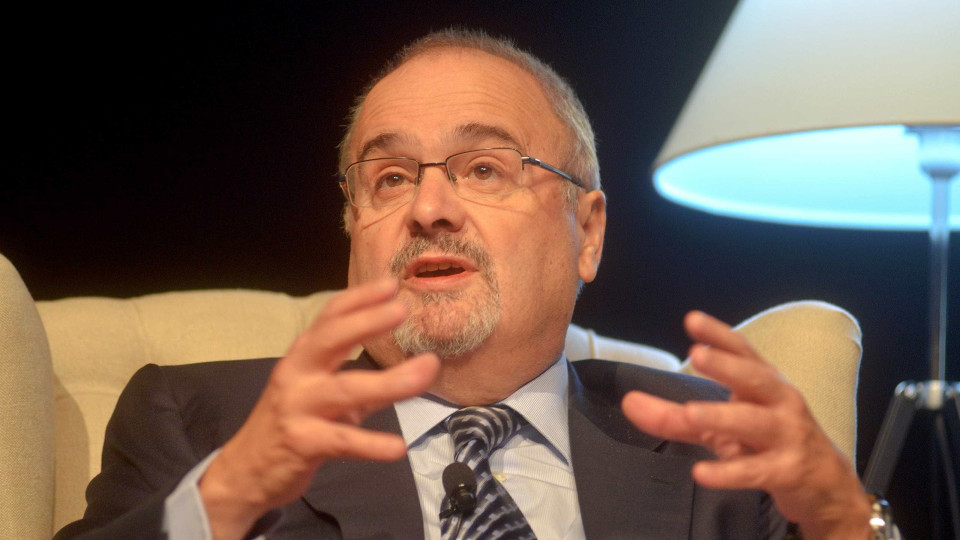Agreements in the Social Concertation generate "greater consensus" in Parliament
The president of the CCP, João Vieira Lopes, argues that the measures agreed on in the Social Concertation will have a greater chance of generating consensus in parliament and states that moving towards a new agreement on incomes and competitiveness "is a non-issue".

© Global Imagens

Economia CCP
The leader of the Confederation of Commerce and Services of Portugal (CCP) emphasises the importance of the Social Concertation, especially at a political time "in which there is a great partisan dispersion in the Assembly of the Republic" where "there are parties that value the Social Concertation and others that do not".
For Vieira Lopes, it would be important that in the fiscal area the measures were consensualised "at least with the parties of the so-called governing arch", as is the case of the reduction of the IRC, "so that each State Budget is not a kind of fiscal reform with all the complication that this has for the functioning of companies".
"It makes perfect sense to try to find points, as indeed exists in most European countries, projects that are not restricted to a legislature", he adds, emphasising that "companies need predictability".
Questioned about whether there should be a new medium-term agreement in the Social Concertation for income and competitiveness with the new Government of the Democratic Alliance (AD) or whether the one that was signed with the previous socialist Government should be maintained, the president of the CCP considers that "this is a non-problem" for the employers' confederation.
"If the agreement in force is revised, or if we move on to a broader, more extensive agreement, in the current context, for us, it is practically the same thing", he states.
However, Vieira Lopes warns that there are commitments made with companies in the previous agreement that must be fulfilled, such as the competitiveness plan for commerce and services or the subsidy for scrapping old passenger cars.
In addition to the fiscal issue, the CCP is open to "a broad discussion" also in the area of labour legislation, he says, recalling that the employers' confederations considered some of the new rules provided for in the Decent Work Agenda, in force since May 2023, unconstitutional.
At issue is the prohibition of companies from resorting to 'outsourcing' (external contracting) in the 12 months after a collective dismissal, the end of the possibility of workers giving up credits when they are dismissed or the contract ends and the extension of the right to trade union activity in the company, in which there are no affiliated workers.
João Vieira Lopes argues that these measures should either be dropped or changed, within the scope of the negotiation that takes place between the social partners.
In the opinion of the CCP leader, the discussion on the sustainability of Social Security should also be reopened in the Social Concertation, since the impact of the Single Social Tax (TSU) on companies "is very strong", and a measure that would allow this tax to be lowered without penalising the revenue of the social security system should be assessed in this sense.
In the Government Programme of the AD, the executive states that it intends to "revisit" the labour changes approved within the scope of the Decent Work Agenda of the previous executive, stating that "one year after the diploma came into force, it is necessary to assess, namely in the Social Concertation and with all the partners, the results of this first year of implementation in the field".
The labour changes of the Work Agenda came into force on 1 May 2023, without the agreement of the Social Concertation and after a 'marathon' of votes in Parliament.
At the end of October 2023, the Ombudsman submitted a request for a declaration of unconstitutionality to the Constitutional Court of the labour rules provided for in the Decent Work Agenda contested by the employers.
DF // EA
Lusa/End
Consolidação de crédito: Perdido com vários créditos? Organize-os, juntando todos numa só prestação

Descarregue a nossa App gratuita.
Oitavo ano consecutivo Escolha do Consumidor para Imprensa Online e eleito o produto do ano 2024.
* Estudo da e Netsonda, nov. e dez. 2023 produtodoano- pt.com








